INTERVIEW


INTERVIEW
In Santa Cruz, Adrián Barbero provided details about the process of relocating Mennonites from Bolivia to Suriname. He stated that it was the government of Suriname that contacted him, and after a nearly two-year process of socialization, they approved the development of an agricultural project. The project will start with 30,000 hectares and can potentially expand up to 300,000 hectares. He acknowledges the risk of «excessive deforestation» in a country not accustomed to it if the Mennonites do as they please in Suriname. However, he asserts that he will only allow them to deforest 50% of the land. «I will set the rules for them.» Environmental Economist Stasiek Czaplicki Cabezas analyzes Adrian Barbero’s responses.
Adrián Barbero: Partner at Terra Invest, the company in charge of bringing Mennonites to Suriname.
January 15th, 2024
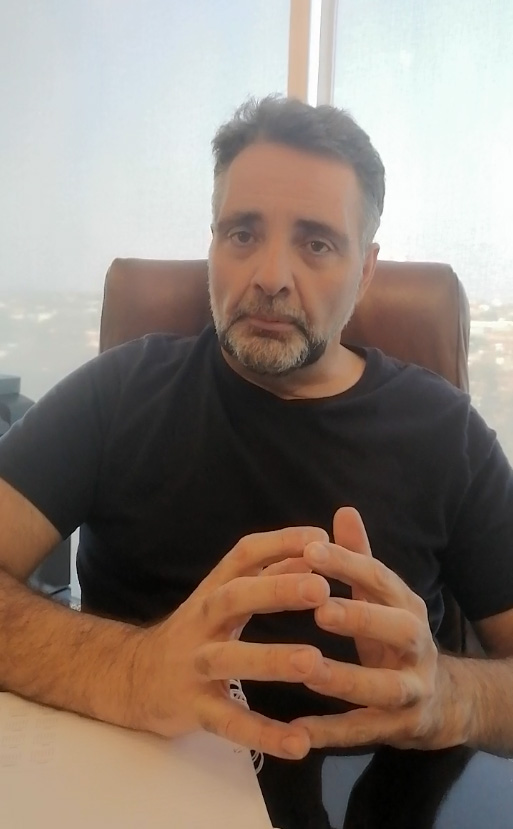
Adrián Barbero gave the interview in his office in Santa Cruz.
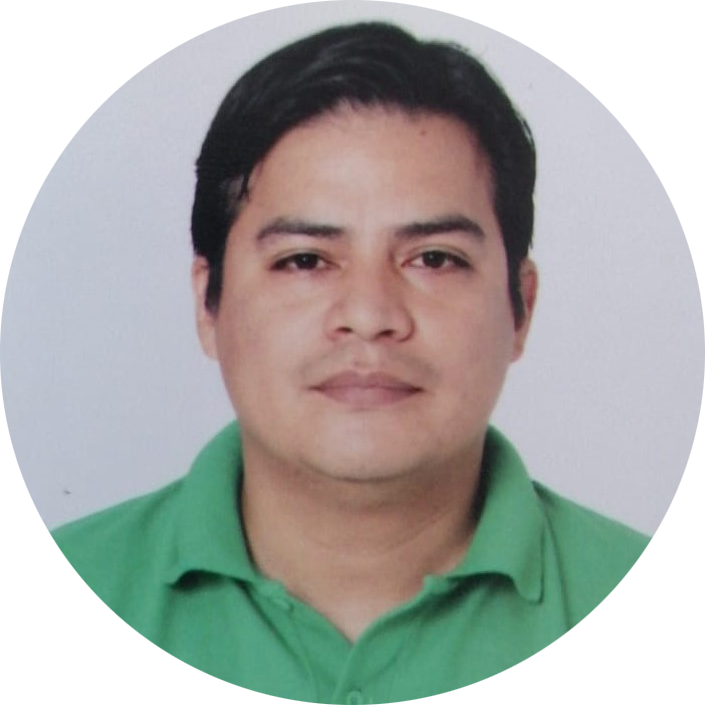
Fernando Soria Sejas
Journalist
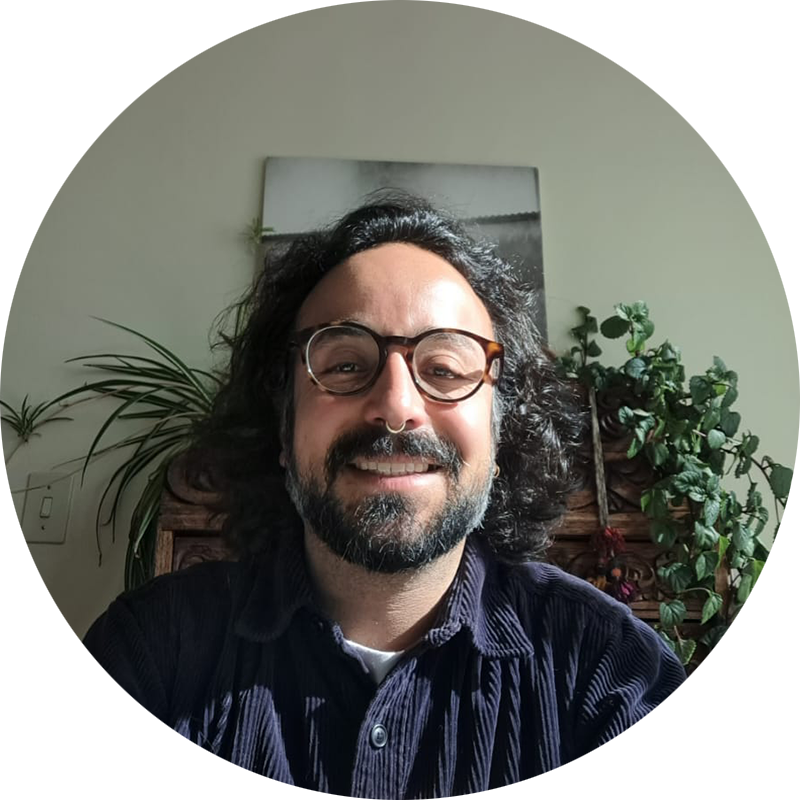
Stasiek Czaplicki Cabezas
Data Analysis
Adrián Barbero opens the door to his office in the most important residential and business area of Santa Cruz. The place is an environment divided into four by glass walls that create modern office spaces, combined with countryside details like natural and artificial plants, and small figurines of high-genetics cattle, a horse, and a replica of the Wall Street bull with its redirection pose for a charge.
Barbero sits in his executive chair, and in the background is his window that spans the width of the entire office, offering a panoramic view of the ecological corridor, a protected area (though not inviolate) in Santa Cruz, which is a barrier of trees on both sides of the Piraí River, contrasting with the buildings that compete in height and modernity parallel to the meandering river. The sky in Santa Cruz is filled with smoke from the forest fires that consume millions of hectares every year, and at this time (the interview was conducted in October), Santa Cruz is the third city with the worst air quality in the world.
Like in his TikTok videos, the ‘agroinfluencer’ who self-identifies as the international reference for the Mennonites, is friendly and ready to explain the fundamentals of agricultural real estate, and stern in defending himself against questions about his business.
To us, the Government (of Suriname) contacted us. They said, ‘We want you to come and produce… .
Throughout this interview, we will add, at the end of each answer, notes from the Environmental Economist, Stasiek Czaplicki Cabezas, which are crucial to contextualize what Adrián Barbero mentions. Additionally, we will share a couple of comments related to his answers that inform us a lot about the implications of the information he shared for Bolivia and/or Suriname.
– How was the lobbying done with the Surinamese government to bring the Mennonites?
– Adrián Barbero: The government (of Suriname) contacted us. They said, ‘We want them to come and produce.’ I began to receive many requests for land outside of Bolivia, from many Mennonite communities, especially in Bolivia. So, I went there (to Suriname), saw what was there, and started the consultation. I got in touch with my partner (the Dutchman based in Suriname, Ruud Souverein) and the people from the Ministry of Agriculture and the Presidency of the Republic of Suriname, telling them that we had farmers interested in going to plant. They (the government) told me they would give us 300,000 hectares, and I said, ‘No, let’s work on a smaller scale and gradually, there is time.’ If I take the land requests (from the Mennonites), it’s a million hectares, I have the list of the colonies with what they lack, and a million hectares are needed. They are so desperate that they want to make a deal with me based on what I can get, (they tell me) ‘We pay you now, and you give us the land in two years,’ but I don’t accept because it doesn’t depend on me. It was a tough lobby with the government for them to accept me. We talked to the President, the Minister of Agriculture, and Land. I believe, and it’s my personal point of view, that, at some point, Suriname said: ‘Okay, with the certifications (forestry), but if we move 3% of the country, it shouldn’t affect, and if they approved it, it’s because they have the ‘okay’ from the most interested parties, the European NGOs that support them.
– Analysis by Stasiek Czaplicki Cabezas: In this section, it is important to contextualize certain figures. On the one hand, in Suriname, only 120,000 hectares are used for agricultural and livestock purposes, and there are only 1,000,000 hectares in the entire country suitable for agriculture and livestock. Therefore, 30,000 hectares in the initial stage and 300,000 hectares in the future seem excessive for a single project. In any case, it implies a disproportionate allocation of the few lands suitable for agriculture and livestock activities. Regarding the mentioned one million hectares in requests from the Mennonites in Bolivia, it is an extraordinary figure that, if true, shows the strong appetite for land that this population group has.
It is important to emphasize that to satisfy the great appetite for new forest lands of the Bolivian Mennonites, many new Mennonite colonies will be required in Bolivia, Suriname, and other regions of the continent. In Bolivia, it is estimated that there are around five new colonies per year. In Suriname, although this is the first Mennonite colony, the precedents of waves of migration in other countries indicate that this is the first of many colonies to be established. In other countries, once the Mennonite migration process begins, it is a never-ending process that eventually takes enormous proportions, especially in terms of associated deforestation and the severe consequences it generates.
Regarding the claims about the project’s approval, on the one hand, the assertion that the Surinamese government approved the project with the approval of environmental NGOs is nonsensical. Sovereign governments do not seek approvals from foreign NGOs for their projects, and to our knowledge, no European NGO was involved in this project. On the other hand, there is a notable lack of coherence in expressions, with colorful statements about how the government came to him saying ‘we want you to come and produce,’ while at the same time describing the steps he took to present his initiative to bring Bolivian Mennonites to Suriname.
– Have you faced opposition from NGOs or indigenous communities?
– Adrián Barbero: We have socialized with all the actors. Honestly, I thought we wouldn’t make progress. If you ‘google’ it, the government has planned 300,000 hectares for the project, and they don’t change the perimeter. About four months ago, the Mennonite issue was more widely spread, and their people are so radical that it overshadows the ecological problem, which caught my attention because I thought the dispute would be more about the environmental aspect than the (cultural aspect of) the Mennonites.
– Analysis by Stasiek Czaplicki Cabezas: This statement about the socialization of his land allocation project to Mennonites in Suriname contrasts with other interviews conducted with NGOs and actors from indigenous peoples of the country, indicating that there was no such socialization. Similarly, the information about the location of the area that will be allocated and that, according to him, can be found on the web, is information that all environmental NGOs in Suriname and/or representatives of social organizations seek and have been able to access with great difficulty.
– In what conditions are the first 50 Mennonite families in Suriname?
– Adrián Barbero: First, we presented a project, located the area that we liked topographically, the altitude, and other requirements. We provided the coordinates of these lands to see if they are freehold, if they have no owner. The Government owns the land with the difference that it grants you a concession or permit, which used to be for 100 years and they changed it in their Constitution to 40 years.
The land regulatory body conducts a feasibility study of the project, along with the Ministry of Agriculture, which verifies that what you are planting is legal and suitable for that type of soil. Then, they make a pre-allocation and make you a proposal for land concession, for which they charge you a fee per hectare. It is an effective purchase derived from the English and Dutch systems. The concession is for 40 years, and I can mortgage it, inherit it, sell it; it is entirely legal because I sell the project with the government’s approval.
If I want to, after 40 years, continue with the concession, at my request alone and with verification by the Government that taxes were paid and the promised development in the contract was made, they give me another 40 years… I can be there for a lifetime if I follow the rules.
– Analysis by Stasiek Czaplicki Cabezas: It is important to clarify that the 40-year land allocation system mentioned by Adrián Barbero does not have an ‘automatic’ renewal upon simple compliance with tax payments and the fulfillment of the presented project. Similarly, the feasibility assessment project documents have not been accessible, neither by us nor by the various NGOs and organizations contacted in Suriname.
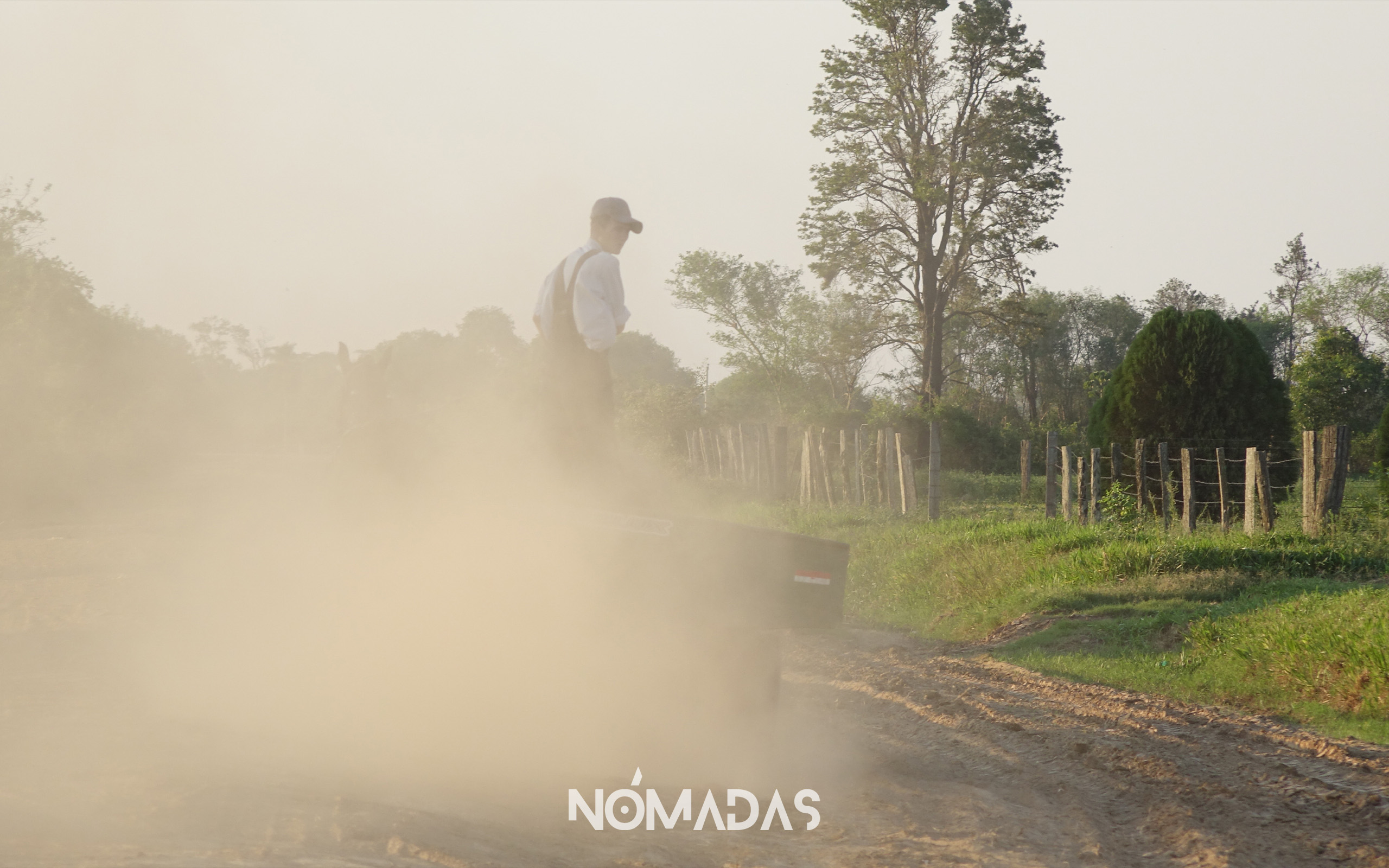
In several Mennonite colonies in Santa Cruz, there is anticipation about going to Suriname. Photo: Nomads Magazine.
– Have 40-year concessions been granted to each family?
– Adrián Barbero: They have granted (the 30 thousand hectares) to my company, that’s why I can manage the issue of deforestation. I regulate it because the Government has been guaranteed by my company, and I transfer it to the Mennonites with the Government’s approval. That’s why the almost two years of socialization of the project were very important.
– Analysis by Stasiek Czaplicki Cabezas: Regarding the mentioned 30 thousand hectares, they represent 1/4 of all agricultural and livestock land in use in the country. The degree of control that the company will exert over the Mennonite Colonies to be established and their families is not clear. In Bolivia and other regions of the world, these families are known for acting independently and autonomously, sometimes even outside the law. However, given the size of the granted land concession, it is clear that the deforestation and land conversion would require more than just 50 Mennonite families.
The Government owns the land but grants a concession or permit, which used to be for 100 years and was changed in their Constitution to 40 years.
– Does the government grant concessions to your company, so you can have control over deforestation?
– Adrián Barbero: Exactly. I am part of the business because I had to convince the government of the attitudes we had as investment developers, in order to bring people who would work. The president himself told us, ‘I need to have corn here in six months because I have a problem. If they decide to mobilize that land for financial reasons, what can I do? Nothing. So, we said: Let’s bring Mennonites because I can put a Mennonite in an extremely difficult environment, and in a short time, they adapt, and there is production, which is what the country was screaming for: ‘We need corn, soy!’.
– Analysis by Stasiek Czaplicki Cabezas: Likewise, it is not clear how the rights to land concessions are granted to Mennonite families, but at the same time, Adrian’s company and/or his partner still have the authority to ‘manage the issue of deforestation.’ Similarly, it is clear that, according to what he indicates, the idea of bringing Bolivian Mennonites to Suriname was Adrian Barbero’s. Under the consideration that Mennonites can work in difficult conditions, it is not clear if these are inhospitable conditions or not.
On the other hand, regarding the demand for soy and corn, there is little evidence to support this, since Suriname’s soy imports have been declining since 2010 and currently reach approximately 5,000 tons, which can be easily produced in less than 2000 hectares. Similarly, for corn imports, which have followed the same trend and are slightly above 6,000 tons annually, which can be easily produced in less than 2500 hectares.
It is important to note that Mennonites in Bolivia produce genetically modified soy and corn that are prohibited in Suriname.
– How much deforestation will those first 50 families and those who come later carry out on each plot?
– Adrián Barbero: Fifty percent. (Editor’s note: we requested a copy of the document where this is recorded, but we did not receive it).
– Analysis by Stasiek Czaplicki Cabezas: This information strongly contrasts with the interviews conducted with Mennonites who indicate having already paid for land in Suriname but are completely unaware of this 50% limitation and the concept of ‘land concession,’ instead of sale as it is done in Bolivia.
– Has it started?
– Adrián Barbero: We are receiving the land titles in favor of the Mennonites. They titled it to me, and I will transfer the title for a property rights issue, but the control of the land transfer contracts is mine. So, I negotiate with the Mennonites what they are going to do with that land. If they don’t comply with the rules, I don’t transfer it to them. And it’s not because I’m a good guy; I take care of my business, and I take care of them too. I really want them to be well-regarded, but they have to help themselves to be well-regarded. If they continue with a radical position from the agriculture of the ’50s, they are in trouble in the world we live in. The bad publicity is, in many aspects, because they do what they please. I will set the rules, but if they say yes and then plan to do what they want, then I won’t sell to them. I’ll stop them right now, from the beginning, because it will be a problem for the project. We will have an excessive deforestation in a society that is not used to it.
I can control it because of land control, okay? If I didn’t have control, I couldn’t do anything. The government won’t sell land to a Mennonite individually.
– Analysis by Stasiek Czaplicki Cabezas: It is unclear if Adrian Barbero, once these land concession rights are sold, could have any power over the Mennonites in the future. He indicates that he will have very strict control before granting the land.
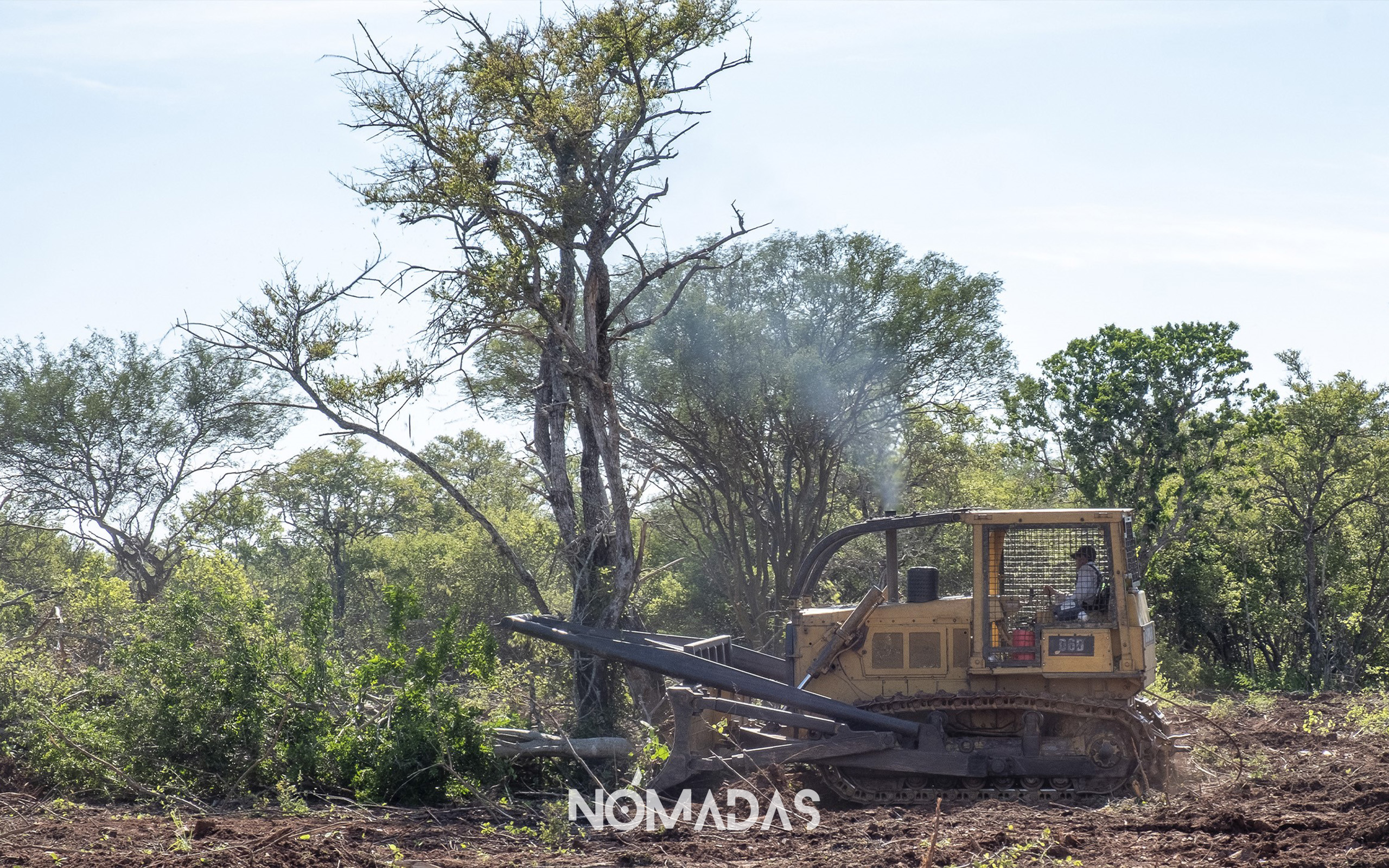
A Mennonite, while clearing land in the colony in the Cuarirenda area, near the Parapetí River.
– People in Suriname, environmentalists, and indigenous communities believe that the impact will be very strong
– Adrián Barbero: Although indigenous rights are not yet regulated in Suriname, there is an internal battle about that. So, we adapt to not be in lands that are in a ‘peaceful fight’, which is debated among politicians.
I am always more concerned about what happens on-site than the law itself because then I have the problem personally in the territory. Why would we go where there will be a conflict? We go to places where nothing is going to happen, where we have acceptance from the people in the villages. Some are Amerindians, local people, and Maroons (who are) the grandchildren and great-grandchildren of former slaves, (living in villages with) no more than 10 or 15 houses.
– Analysis by Stasiek Czaplicki Cabezas: Indeed, in Suriname, many voices against this project find it unfair as it grants land concession rights to foreign individuals, despite indigenous populations having been demanding land in the country for decades. It is unclear if the lands involved in the project are part of a collective demand from indigenous peoples or other actors in Suriname.
If I want, after 40 years, to continue with the concession, it’s solely at my request, with verification by the Government that taxes were paid and the promised development in the contract has taken place; they grant another 40 years….
– Have there been no uprisings against it?
– Adrián Barbero: On the contrary, we are providing them with jobs. They don’t have work, and we have socialized. We held meetings (and explained) ‘we are going to do this’, we took photos with the type of clearing we are going to do, which does not include burning. The Maroons have some trees they consider sacred, and we made agreements so that those are not touched. Many details that pertain to daily life, peacefully, took me two years of the project. That makes me stay in Suriname for 40 years. If I don’t pay attention to these things, I’m out in two years. We are going to do it right.
– Analysis by Stasiek Czaplicki Cabezas: The agricultural and livestock production systems of Bolivian Mennonites are known to be highly dependent on family labor and not generate employment. Therefore, the statements made must be taken with caution.
Regarding the consideration for sacred trees of the Maroons, several doubts arise. Will these trees remain standing in the middle of soy and corn fields?
– How many trips have the Mennonites made to Suriname?
– Adrián Barbero: More than 50 trips. Right now, we have two defined blocks for which we have the titles and everything, one going to the Mennonites in Bolivia and the other to the Mennonites in Belize. What we have to do is, once they title us, we will register in favor of the societies we have created there, meaning Terra Invest will transfer to the Mennonite societies that already have their tax issues sorted out, up-to-date, bank accounts, and everything.
We expect, maybe in November (the interview was conducted in October), to go with about 20 or 30 families from each colony to start marking roads and taking possession. The Government has given us a special visa for the Mennonites. First, it’s 50 families, and then the opening is to whatever we want, no problem. (The visa) Also gives us the possibility to arrive on the same day in Suriname and start working because these blondies (referring to the Mennonites) arrive and grab a shovel. The government gave us the visa with the idea that the Mennonites naturalize there.
– Analysis by Stasiek Czaplicki Cabezas: It is understood to be a trial or pilot phase that will be scaled up.
– How much do the trips cost and how are they financed?
– Adrián Barbero: The commercial flight goes from Santa Cruz (Bolivia) to Panama and from there to Suriname. Everything is done in one day. The Mennonites minimize expenses (contributing) among everyone. It is divided in proportion to the people in the colony, and it’s about 5 or 6 dollars each. They have an investment fund in each colony with which they help people move because most of them are young and can’t afford it.
I have my own house, which we give to them because hotels are expensive. There are about 20 men and 5 women going to cook.
We have containers ready; I have teams working on that. We bring machinery from the US and China. So, the expenses are high, but we cover them in a cooperative way.
First, we will focus on the arrival at the physical space of my company, which has warehouses to unload the machinery. I already have a field in Suriname for the first few months until they can set up their first houses.
– However, agriculture has effects on the environment…
– Adrián Barbero: I believe that agriculture and livestock are necessary; we can’t say, «We won’t produce anymore because the consequences will be dramatic.» It’s very interesting to see countries like Suriname; they have been 100% protectionist, not for moral reasons but economic, because European countries were over them.
It has 98% of its territory covered by the jungle; it looks beautiful, it’s fine. Now, 90% is under forest management, meaning that tree extraction has always existed. Just because you don’t see it on the surface doesn’t mean the trees aren’t gone. From below, you can see that trees have been removed. That is a legal business there. The lack of state presence has also allowed drug trafficking to wreak havoc, and illegal mining is a headache in these countries.
As a visitor and now a resident in this place, they realized that to buy a ton of soybeans, they had to wait in a long line (due to Covid and the war in Ukraine) behind ships from countries with high demand, with China at the forefront. They depend on soybeans and corn to feed the chickens because the humblest people in that country consume chicken. This is due to the lack of state foresight in food and the exaggerated care of some environmental NGOs that have pushed tremendously to prevent agriculture. If they had the vision that 5% of the country could be altered by deforestation, they would have food security today, and they wouldn’t depend on a significant part of Europe for their food. I have nothing against that, but it’s a detail.
So, they reached a point where they said, «We have a serious problem; we can’t maintain prices,» because if chicken prices rise, there’s a problem. If there had been the vision to allocate 5% of the territory to agriculture, they would be producing their own corn and soybeans today, «Made in Suriname,» which is what we are fighting for with the government and the Ministry of Agriculture.
– Analysis by Stasiek Czaplicki Cabezas: Between the accommodation provided by Adrian himself, the importance of machinery and equipment done in his name, and the costs associated with land allocation, it seems very similar to a «habilito» system, where Adrian advances certain funds, and it is unknown what the repayment capabilities will be, and the only guarantee they have is the concessioned land. However, the history of habilitation of rubber in Bolivia invites us to look very cautiously at systems like this, where the «benefited» population has no one to turn to if they find themselves under exploitative conditions.
Assertions that the agricultural expansion in Suriname, where 98% of the area is forest, is due to pressure from the environmental sector grant power to that sector that it completely lacks and has not been able to stop this new initiative.
– Has the environmental impact study been conducted?
– Adrián Barbero: Yes, it has been done because if it had been negative, under their rules, they wouldn’t have approved the project.
When we are authorized, and the project is signed, I can automatically clear whatever I want. I don’t have to ask for permission because the impact study was done beforehand. Otherwise, they wouldn’t have approved it.
This is where I come in to say: It won’t be 100% deforestation; it’s my land. If the Mennonite doesn’t want it, I won’t sell it to him. I have requests for a million hectares, and I’m not going to worry about not giving 10,000 hectares to someone who makes me look bad.
***
Esta entrevista fue realizada por Revista Nómadas.
Medios aliados para la difusión:
Te contamos desde el interior de los escenarios de la realidad, iluminados por el faro de la agenda propia, el texto bien labrado y la riqueza poética del audiovisual y de la narrativa sonora, combinaciones perfectas para sentir el corazón del medioambiente y de los anónimos del Planeta.
